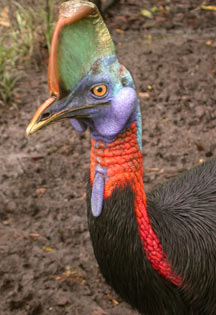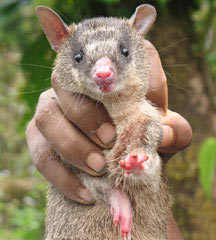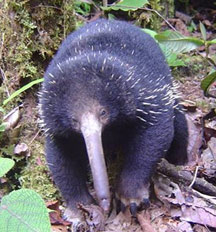Green Capacity (GC) is a US-based 501(c) (3) not-for-profit corporation formed to ensure a biologically sustainable future. We 1) conduct much-needed research, 2) give national biologists and conservationists the skills they need to preserve biodiversity in their own countries, and 3) ensure information is shared with all relevant parties so that it is translated into action.
Our History
Green Capacity received its USA EIN number on 17 March 2010, its domestic non-profit corporation entity number from the state of Pennsylvania on 26 April 2010, and its USA Federal tax exempt status from the Internal Revenue Commission on 25 June 2010.
Green Capacity was formed in large part to support the efforts of the Papua New Guinea (PNG)-based Papua New Guinea Institute of Biological Research (PNGIBR) (www.pngibr.org). Two of our founding board members (Drs. Debra Wright and Andrew Mack) have worked in PNG since 1987, conducting research and training PNG biologists and conservationists. They have led annual month-long training courses for up to 30 university students and conservation/biology professionals since 1996 in field techniques, project design, data analysis, and report write-up (over 360 individuals trained to date), have mentored 24 PNG Honours degree students in collaboration with the University of PNG, and have helped to obtain overseas Masters scholarships for 17 Papua New Guinean biologists. They founded and were co-directors of the PNG Program office for a large international conservation organization from 1999 through 2007. When this international body decided to stop training efforts they joined their former students in creating PNGIBR as an independent PNG-based non-profit. Our third founding board member (Dr. Patrick Osbourne) was Head of the University of Papua New Guinea Biology Department before moving to the US to become a professor at the University of Missouri and Executive Director of the Whitney R. Harris World Ecology Center. He has been a great supporter of higher education in PNG, and five of PNGIBR’s staff and students have been mentored by him at the University of Missouri while working on their Masters degrees.
Our Vision is to be a facilitator and driving force behind biological research and education in developing nations, especially PNG, so that people have the knowledge and skills they need to ensure a biologically sustainable and diverse future in their own countries.
Our Mission is to resolve conservation challenges by nurturing biology and conservation professionals in underdeveloped nations through training, mentoring and financial subsidy. Green Capacity also helps to build baseline biological knowledge in underdeveloped nations by conducting and supporting biological research in partnership with national scientists.
Our Purpose
Green Capacity works to build human and intellectual capital for a biologically sustainable future by working with the international community. Our target nation is Papua New Guinea, characterized by four criteria: 1) high biodiversity, 2) underdeveloped national scientific community, 3) underdeveloped local educational infrastructure for building scientific capacity, and 4) poorly-known and under-studied biota and ecosystems.
Green Capacity works to correct target nation needs by conducting and supporting scientific research relating to biodiversity, ecosystems and threatened species in partnership with national scientists, and by building indigenous scientific infrastructure through direct educational programs.
Educational programs include holding courses in target nations and sponsoring students to attend classes overseas that they could not attend at their home universities. Courses may be short specific workshops, field courses, semester long classes or degree programs.
We also recognize that mature scientists best develop through a process of mentoring. Young scientists need to work with senior scientists who will guide them in the field or laboratory; they need mentoring to take them through the entire process of conceptualizing and designing research, executing the research, data analysis, and communication of results, both to the scientific community and back to local policymakers. Green Capacity supports young scientists from target nations and partners them with accomplished scientists from their own nation and with scientists from developed nations to obtain intensive mentoring, particularly in the field and laboratory. These mentorships grow a national scientific corps to develop internally-driven high quality science and conservation policy and provide research outcomes to improve conservation and management efforts. Green Capacity also aids promising scientists to attend advanced research and degree programs at top international universities.




